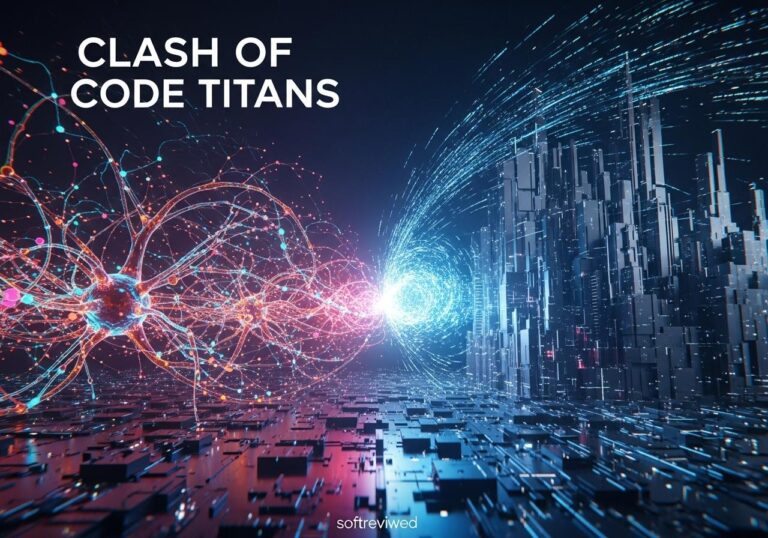🔍 Google Search Just Got a Whole Lot Smarter Thanks to AI Mode!
Revolutionary AI-powered search features are transforming how we discover and interact with information online.
Revolutionary AI Search with Gemini 2.5
Advanced multimodal reasoning and reasoning capabilities powered by Google’s latest custom-gen model.
Deep Query Fan-Out Exploration
Automatically breaks questions into subtopics, searches simultaneously, and synthesizes hyper-relevant web content.
Seamless Follow-Up Conversations
Enables iterative questioning to dig deeper without restarting searches.
Smart Visualization Automations
Generates charts, comparisons, and product analysis visualizations dynamically from search results.
Global Scaling & Accessibility
Expanding to 200+ countries, 40+ languages, and core features migrating from AI Mode to mainstream Search.
User-Optimized Feedback Loops
Features developed in AI Mode will graduate to core Search after user testing and refinement.
The Dawn of Intelligent Search: Understanding AI Mode
Tired of sifting through endless links to find the information you need? The world of online search is changing, and it’s thanks to AI mode. This isn’t just about finding keywords; it’s about understanding the intent behind your queries. This article explores how AI is transforming search, offering a smarter and more intuitive way to access information. We’ll look at how it works, the benefits it offers, the challenges it faces, and where it’s headed.
What Exactly Is AI Mode in Search?

AI mode in search refers to the integration of artificial intelligence technologies into search engines to enhance their ability to understand user intent, provide more relevant results, and offer a more interactive search experience. This goes beyond simply matching keywords to web pages. It’s about understanding the context of your search, the nuances of your language, and your individual needs.
Decoding the Tech: How AI Mode Works
AI mode utilizes a combination of powerful AI techniques to deliver more intelligent results.
Natural Language Processing (NLP): The Key to Understanding
Natural Language Processing (NLP) is at the heart of AI mode. NLP enables search engines to understand the meaning of your words, not just their literal definition. This means that search engines can now process complex questions, understand synonyms, and even infer your intent based on the context of your search.
Machine Learning (ML): The Engine Behind the Intelligence
Machine Learning (ML) algorithms learn from vast amounts of data to improve search results over time. By analyzing user behavior, search patterns, and website content, ML algorithms can identify the most relevant and helpful information for each query.
A Brief History: From Keyword Stuffing to Smart Semantics
Remember the early days of the internet, when websites crammed as many keywords as possible onto a page in an attempt to rank higher in search results? Thankfully, those days are largely gone. AI mode represents a significant shift from this keyword-centric approach to a more semantic understanding of information.
How AI Mode Elevates Your Search Experience
AI mode offers several key advantages over traditional search methods.
Semantic Search: Understanding the Meaning Behind the Words
Instead of simply looking for exact matches to your keywords, AI-powered search engines analyze the semantic meaning of your query. This means they can understand the underlying concepts and relationships between words, even if you don’t use the “right” keywords.
Personalized Results: Tailored to Your Intent
AI mode can personalize search results based on your past search history, location, and other factors. This means you’re more likely to see information that’s relevant to your specific needs and interests.
Contextual Awareness: Location, Time, and More
AI mode can also take into account the context of your search, such as your location, the time of day, and even current events. For example, if you search for “restaurants near me” at lunchtime, you’ll likely see different results than if you search for the same thing at dinner time.
AI Mode in Action: Real-World Examples
Here are a few examples of how AI mode is being used in search today:
Enhanced Question Answering: Getting Straight to the Point
AI-powered search engines are increasingly able to answer your questions directly, without you having to click through multiple links. This is thanks to NLP and ML algorithms that can extract key information from web pages and present it in a concise and easy-to-understand format.
Visual Search: Searching With Your Camera
Visual search allows you to search for information using images. Simply take a picture of something, and the search engine will identify it and provide relevant results.
Voice Search: The Hands-Free Revolution
Voice search is another example of how AI is making search more convenient and accessible. Using NLP, voice search enables you to ask questions and issue commands using your voice, freeing up your hands and allowing you to search on the go.
Comparing Traditional Search vs. AI-Powered Search
| Feature | Traditional Search | AI Mode in Search |
|---|---|---|
| Data Understanding | Keyword-based matching | Semantic understanding of context and intent |
| Result Presentation | List of links | AI-generated summaries and links |
| User Interaction | Limited interaction | Follow-up questions, voice and visual search |
| Personalization | Basic personalization based on search history and location | Tailored results based on user preferences and app connections |
| Technology | Primarily relies on algorithms and indexing | Leverages NLP, ML, and multimodal AI |
The Potential Pitfalls: Challenges and Considerations
While AI mode offers many advantages, it also presents some challenges and considerations.
Bias in Algorithms: Addressing Fairness Concerns
AI algorithms are trained on data, and if that data is biased, the algorithms can perpetuate and even amplify those biases. This is a major concern in search, as biased search results can have a negative impact on individuals and communities.
Privacy Concerns: Protecting Your Data
AI mode relies on collecting and analyzing vast amounts of user data. This raises privacy concerns, as users may not be aware of how their data is being used or who has access to it.
What’s on the Horizon? The Evolution of AI in Search
The future of AI in search is looking bright. Here are a few trends to watch:
Multimodal Search: Combining Text, Images, and Audio
Multimodal search will allow you to search for information using a combination of text, images, and audio. For example, you could take a picture of a plant and then ask, “What kind of plant is this and how do I care for it?”
Generative AI Integration: Creating New Content
Generative AI models are increasingly being integrated into search engines to generate new content, such as summaries, translations, and even creative writing.
Intelligent Information Retrieval: A New Era for Search
AI mode represents a fundamental shift in how we access information online. From semantic understanding to personalized results, AI is making search more intelligent, intuitive, and relevant than ever before. As AI technology continues to evolve, we can expect even more exciting developments in the world of search. To delve deeper into search engine optimization (SEO) and how it integrates with AI, consider exploring resources like the Google Search Central.







